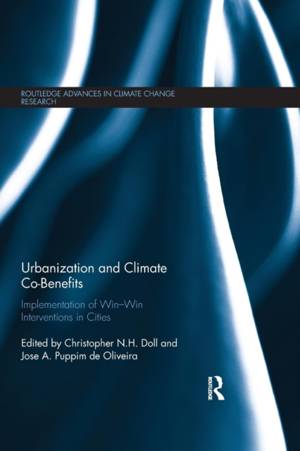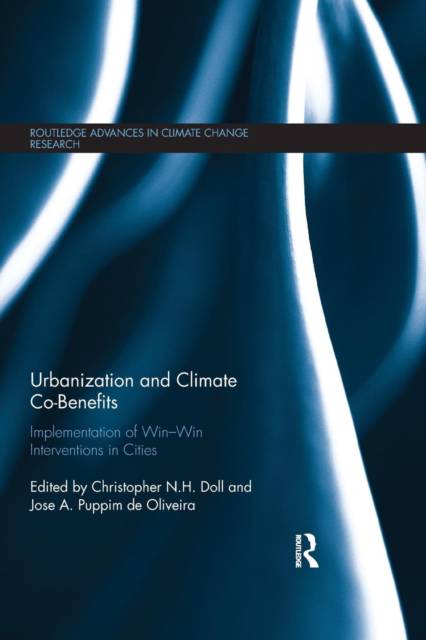
- Afhalen na 1 uur in een winkel met voorraad
- Gratis thuislevering in België vanaf € 30
- Ruim aanbod met 7 miljoen producten
- Afhalen na 1 uur in een winkel met voorraad
- Gratis thuislevering in België vanaf € 30
- Ruim aanbod met 7 miljoen producten
Urbanization and Climate Co-Benefits
Implementation of Win-Win Interventions in Cities
Omschrijving
Urban areas are increasingly contributing to climate change while also suffering many of its impacts. Moreover, many cities, particularly in developing countries, continue to struggle to provide services, infrastructure and socio-economic opportunities. How do we achieve the global goals on climate change and also make room for allowing global urban development? Increasing levels of awareness and engagement on climate change at the local level, coupled with recent global agreements on climate and development goals, as well as the New Urban Agenda emerging from Habitat III, present an unprecedented opportunity to radically rethink how we develop and manage our cities.
Urbanization and Climate Co-Benefits examines the main opportunities and challenges to the implementation of a co-benefits approach in urban areas. Drawing on the results of empirical research carried out in Brazil, China, Indonesia, South Africa, India and Japan, the book is divided into two parts. The first part uses a common framework to analyse co-benefits across the urban sectors. The second part examines the tools and legal and governance perspectives at the local and international level that can help in planning for co-benefits.
This book will be of great interest to students, practitioners and scholars of urban studies, climate/development policy and environmental studies.
Specificaties
Betrokkenen
- Uitgeverij:
Inhoud
- Aantal bladzijden:
- 324
- Taal:
- Engels
- Reeks:
Eigenschappen
- Productcode (EAN):
- 9780367026905
- Verschijningsdatum:
- 11/01/2019
- Uitvoering:
- Paperback
- Formaat:
- Trade paperback (VS)
- Afmetingen:
- 156 mm x 234 mm
- Gewicht:
- 489 g

Alleen bij Standaard Boekhandel
Beoordelingen
We publiceren alleen reviews die voldoen aan de voorwaarden voor reviews. Bekijk onze voorwaarden voor reviews.










